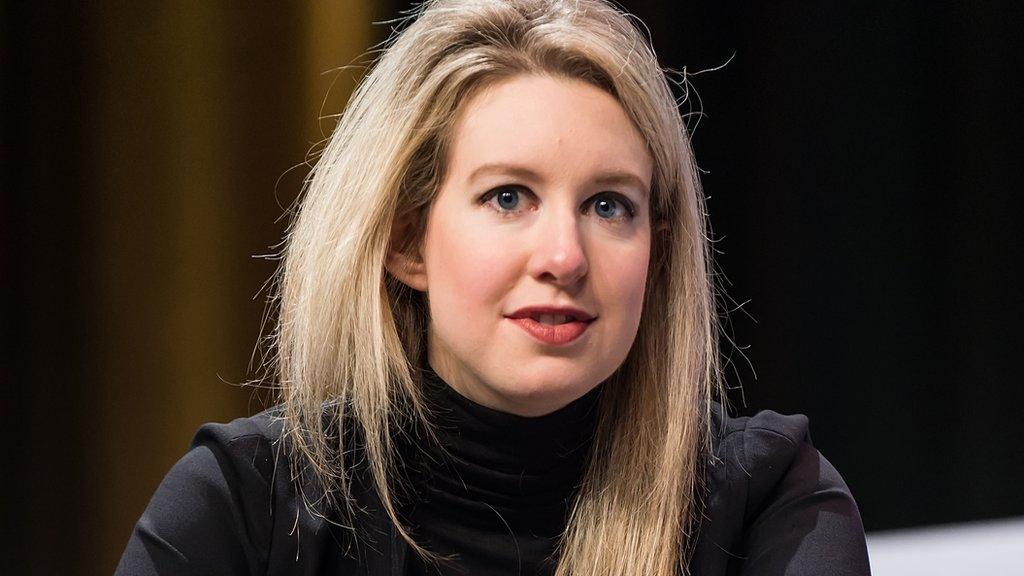Theranos exec Sunny Balwani convicted of fraud
- Published
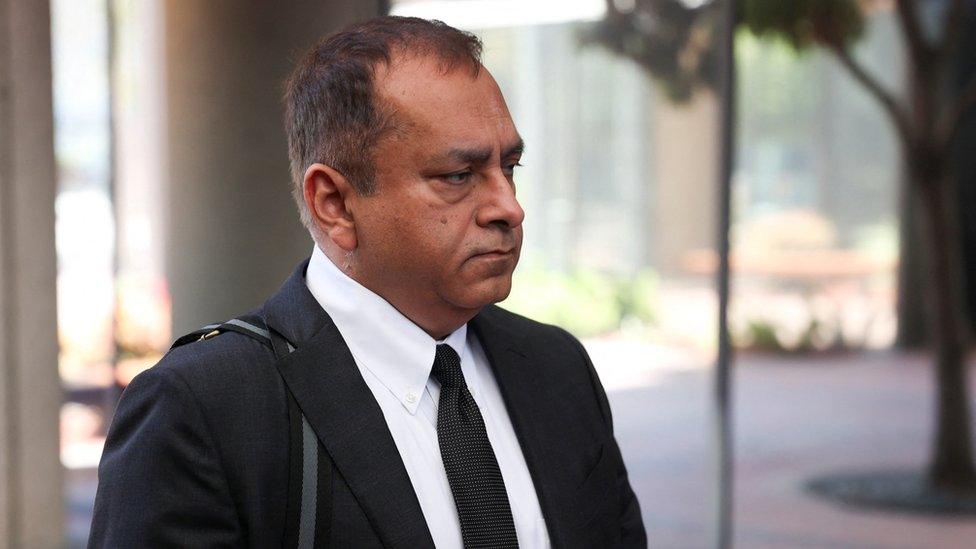
Balwani's company was once worth $9bn (£7.5bn), but was based on blood testing technology that did not work
Silicon Valley executive Ramesh "Sunny" Balwani has been found guilty of deceiving investors as part of a plot with ex-girlfriend Elizabeth Holmes.
He falsely and repeatedly claimed that their company, Theranos, had a device that could detect hundreds of diseases with a few drops of blood.
Holmes was found guilty at a separate trial in January where she accused Balwani of abuse - which he denies.
Both Holmes, 38, and Balwani, 57, will be sentenced by a judge in the autumn.
Holmes is facing around 20 years in prison and is currently free on bail. Balwani also faces up to 20 years in prison as well as millions of dollars in restitution payments to his victims.
Theranos was once worth $9bn (£7.5bn), but was based on blood testing technology that did not work.
The verdict was read on the fifth day of jury deliberations at a courthouse in San Jose, California, in the heart of Silicon Valley. Balwani was found guilty of all 12 charges against him.
During closing arguments on 21 June, prosecutors showed text messages sent by Balwani to Holmes.
"I am responsible for everything at Theranos," he wrote in 2015. "All have been my decisions too."
Assistant US Attorney Jeffrey Schenk called the message an admission of guilt. "He's acknowledging his role in the fraud," he said.

Balwani takes centre stage

Sunny Balwani was Theranos' number two.
Holmes was the company's founder and leader. But Balwani ran the everyday operations of the company.
He had no medical training to speak of, and some thought that might be enough to convince a jury that he simply did not understand that Theranos' technology didn't work.
His lawyers also argued that he invested his own money in the company - why do that if he thought the technology was dud?
But this set of verdicts makes him just as culpable, in some respects more culpable, for the Theronos scandal than Holmes.
Holmes was convicted of four charges of fraud, Balwani of 12 counts. He was also convicted of defrauding patients, something Holmes avoided.
It means that Balwani will now go down in history as front and centre in the Theranos saga.
Here in Silicon Valley, execs at start-ups and tech companies will be looking on.
They'll note that an executive was convicted of wider charges of fraud than the founder and chief executive.
It sets an important legal warning to managers - it's not always the boss that shoulders the greatest burden of responsibility.
The verdict also partly vindicates Elizabeth Holmes' legal team, who placed her on the witness stand to be cross-examined. A risky move that may have paid off.

Theranos was once the darling of biotech and Silicon Valley.
Holmes was able to raise more than $900m from investors, including billionaires like media magnate Rupert Murdoch and tech mogul Larry Ellison.
The firm promised it would revolutionise the healthcare industry with a test that could detect conditions such as cancer and diabetes with only a few drops of blood.
But these claims began to unravel in 2015 after a Wall Street Journal investigation reported that its core blood-testing technology did not work.
The three-month case against Balwani bore large similarities to the government's prosecutions of Holmes.
Lawyers for Balwani argued that he was also duped by Holmes, after he joined the company and became chief financial officer in 2010.
Before breaking up as the company fell apart in 2016, the couple went to great lengths to ensure that investors and employees were unaware of their romantic relationship.
His lawyers pointed out that after investing $15m of his own money into Theranos, he never cashed out his stock options despite his investment rising to some $500m.
Unlike Holmes, Balwani did not take the stand to testify in his defence.
Holmes reportedly first met Balwani during a college trip to Beijing when she was 18.
He was a 37-year-old South Asian immigrant who had made millions selling his software company before the dot-com bubble burst. Around the same time he met Holmes, he divorced his wife, a Japanese artist. Their relationship became a romantic one around the time that Holmes was starting Theranos.
While Holmes was the face of the company, he was the businessman serving as the president and chief operating officer.
"Ms Holmes and Mr Balwani were partners in virtually everything," prosecutor Robert Leach said earlier in the trial.
"The defendant and Holmes knew the rosy falsehoods that they were telling investors were contrary to the reality within Theranos."
Related topics
- Published18 March 2022
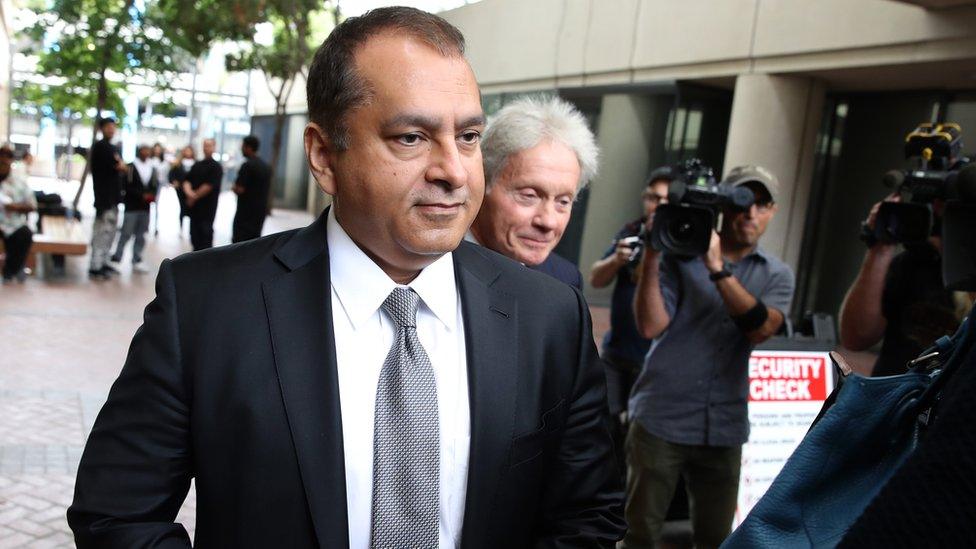
- Published4 January 2022
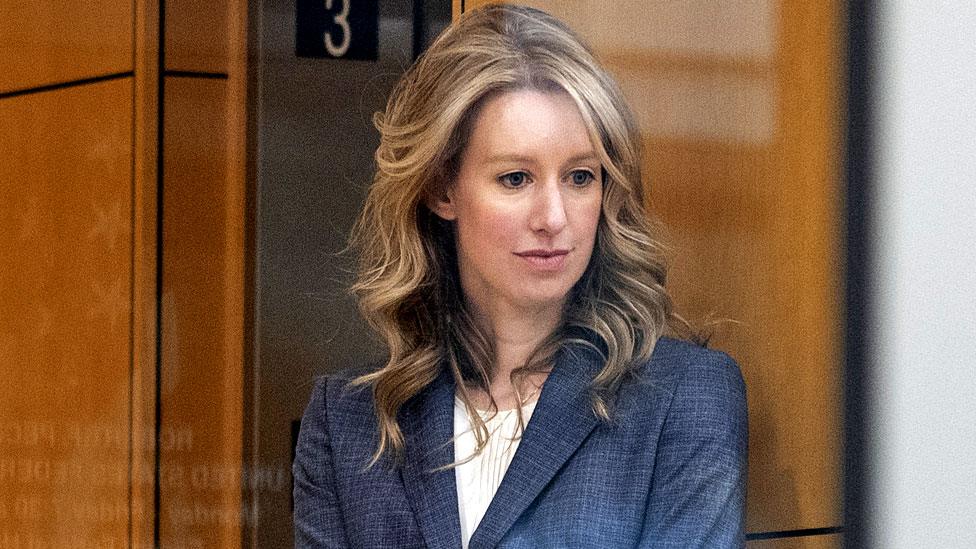
- Published19 November 2022
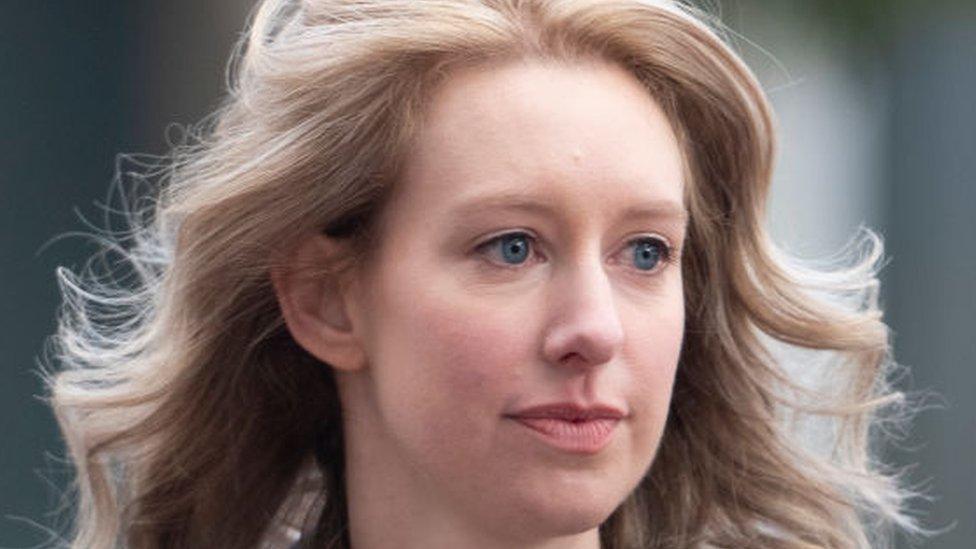
- Published4 January 2022
